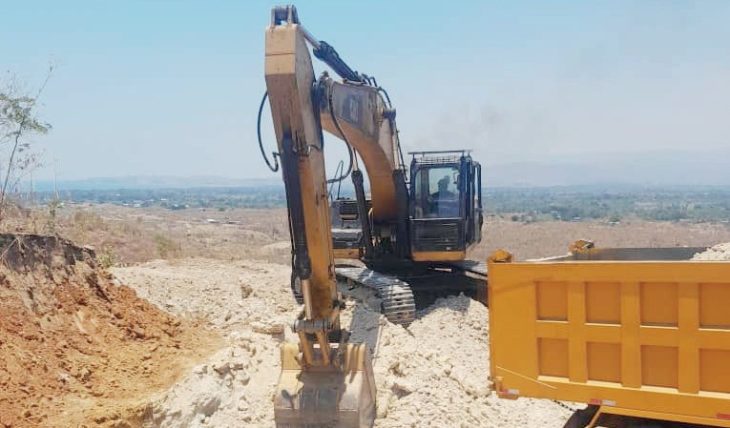
Limestone Mining Venture to Generate 200 Employment Opportunities, Fueling Malawi’s Economic Growth
Key Business Points
- Job creation: African Minerals and Steel Limited’s new mining licence is expected to generate over 200 direct jobs in Malawi, contributing to the country’s economic growth and development.
- Import substitution: The company’s limestone extraction project will reduce Malawi’s dependence on imported lime, conserving foreign exchange and promoting local beneficiation of natural resources, in line with the Chichewa phrase "tiwonetse za magalimoto" (let’s see the benefits of mining).
- Economic growth: The investment aligns with the Government of Malawi’s ATM+M strategy, which prioritises value addition and local beneficiation of natural resources to accelerate economic recovery and promote "kulima kweni kweni" (farming and mining to improve livelihoods).
African Minerals and Steel Limited, a subsidiary of Rukuru Holdings Limited, has been awarded a 15-year medium-scale mining licence for limestone extraction at Uliwa in Karonga District. The licence is subject to final environmental clearance by the Malawi Environmental Protection Authority (Mepa). The company has secured financing for the project, which is expected to generate over 200 direct jobs at both the mine site and associated processing facility. The investment is a significant boost to Malawi’s mining sector, which currently contributes about one percent to the country’s GDP.
The company has procured a modern limestone processing plant from China to set up a plant in Mzuzu to produce both construction and agricultural lime. This will significantly reduce Malawi’s dependence on imported lime and help conserve foreign exchange. Construction lime is vital for the country’s infrastructure development, and locally sourced lime will make a critical difference. The investment aligns with the Government of Malawi’s ATM+M strategy, which prioritises value addition and local beneficiation of natural resources to accelerate economic recovery.
Malawi has several energy transition mineral projects in the pipeline, including the Songwe Hill rare earths project, Lotus Resources to restart the Kayelekera Uranium Mine, and Globe Metal & Mining for the Kanyika niobium project. The World Bank has noted that several factors could prevent Malawi from fully leveraging the potential of the mining sector to drive long-term growth and poverty reduction. However, the government is implementing transparent licensing processes, establishing legal frameworks that enforce fair partnerships, and strengthening institutional capacity through the Malawi Mining Authority.
The mining sector has the potential to drive economic growth and poverty reduction in Malawi. Limestone is a critical input in the production of cement, agricultural fertilisers, water treatment solutions, and various construction materials. According to the 2025 Malawi Government Annual Economic Report, while there are only a few producers of cement in Malawi, the use of locally mined limestone and iron ore is increasing, with a 138.22 percent increase in production compared to the previous reporting period. This trend is expected to continue, with the government’s efforts to promote the mining sector and encourage local beneficiation of natural resources. As the mining sector grows, it is likely to have a positive impact on the economy, creating jobs and stimulating economic activity, and promoting "mphamvu ya malawi" (Malawi’s strengths).
What are your thoughts on this business development? Share your insights and remember to follow us on Facebook and Twitter for the latest Malawi business news and opportunities. Visit us daily for comprehensive coverage of Malawi’s business landscape.
- Malawi’s K1.2tn Gold Smuggling Scourge: A Threat to Business Growth and Economic Stability - February 1, 2026
- Revitalizing Malawi’s Economy: Lower Food Prices Signal New Growth Opportunities - January 31, 2026
- Revitalizing Malawi’s Economy: Tackling Climate Related Underfunding for Sustainable Growth - January 30, 2026
